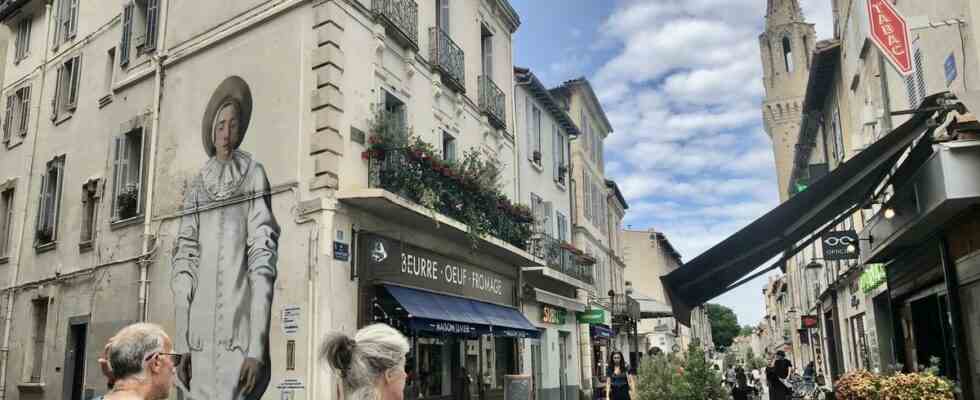Bédarrides, in the Vaucluse. Its old village within ancient ramparts, its 5,000 inhabitants and its 69% of the votes for Marine Le Pen in the second round of the presidential election. On the electoral panels facing the town hall, no trace of the poster of the candidate of Nupes, Muriel Duenas (PCF), in the legislative elections, in this 3rd constituency of Vaucluse which elected in 2017 Brune Poirson ( LREM).
A glass of gasoline and a handful of kilometers away, in Avignon, Jean-Luc Mélenchon achieved 36.9% of the votes. A city/countryside electoral opposition that can be found in most of the municipalities surrounding Avignon.
“The most determining variable is that of the diploma”
Denis, a young 20-year-old welder met in the village of Bédarrides, goes out of his way to explain these discrepancies in results. “It’s not really complicated, there are more French people here than in Avignon”. If he confesses not to have voted, “not available”, he expresses that he would undoubtedly have voted “Marine, as [s] are friends”. A shortcut that Christèle Lagier, sociologist and lecturer at the University of Avignon, specialist in the far right, does not take. “In fact, the most determining variable for the Mélenchon or Le Pen vote is that of the diploma. As soon as we exceed bac +2 or +3, we find almost no more extreme right votes, ”she explains. “To this, we must add the popular electorate which is largely focused on Mélenchon”, continues the academic. “Conversely, the far-right electorate is more made up of people who consider themselves to be the “turkeys of the farce” by believing that they do not benefit from the mechanisms of redistribution. People who work, but have the impression of working for others”, sums up Christèle Lagier.
At the bar-PMU of Bédarrides, next to the armory, at coffee or pastis time, we do not openly deliver our vote or indicate that we do not vote. “For me, it’s simple, if you don’t work, you shouldn’t be able to eat,” says a young construction worker. Work, Najim, has done this all his life. This carpenter arrived from Morocco in France at the age of 13, lunches at the nearby brasserie. Beret on the head and glass of red wine at the table, adapts to its environment. “It’s always been like that, maybe they’re protecting their culture. We Arabs like us in the fields, like my father did. Finally, it takes everything to make the world,” he philosophizes. “Finally, the other day, there was still Jean-Pierre who said: ‘Foreigners, we integrate them or we disintegrate them.’ But that didn’t stop him from eating with me. »
In Avignon, in the cobbled and shaded streets protected by the famous ramparts, the National Rally vote is however not non-existent. Like this young woman, seduced by her discourse on purchasing power and who would have liked to see a female president, or this bar owner, owner of two apartments and originally from Orange, a city held by the very right-wing Southern League, which can no longer stand the property tax of the city of the popes. However, unlike Bédarrides, Sorgues, or Entraigues, you don’t have to go very far to find voters in Mélenchon and Nupes.
On June 12 and 19, all these beautiful people will mix up their votes
Claire, just eighteen years old, is about to join the faculty of letters and has just participated in her first election, voting with conviction for Mélenchon, “for his ideas more than the character”, she specifies. This teacher’s daughter, living in Avignon, clearly notes this electoral opposition in her high school, also populated by students from neighboring villages. “It’s like two worlds that don’t meet. There are people in my high school who say that multiculturalism can’t work, that it’s always the Arabs who mess up, excuse me, and who put certain people in the same bag. It seems that they never leave their village,” she judges. The opposite could be true, as the inhabitants of the city centers only occasionally rub shoulders with the villages, on holiday.
On June 12 and 19, all these beautiful people will mix their votes and send 577 deputies to the National Assembly. More than ever, it may well resemble this landscape, fractured.

